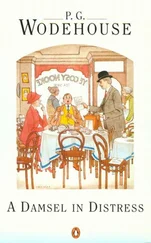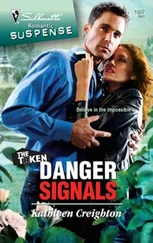The sailors didn’t wait for Ralph. Their muscles itched. With treacle rum inside of them, the job of loading the wagons with the loose gear from the Belle seemed almost enjoyable. They packed the gear as tightly as they could, but there was hardly space for all of it. The wagon wheels sank into the ground a further inch or two. Water puddled at their rims. They should have brought three wagons and six horses. They’d never get this load up onto the headland without an act of God. They had to half unload again and waste the best part of an hour carrying the smaller and the lighter stores up to the headland by hand. They let Palmer take charge of the cattle. He was less nervous of cows than the sailors were. He went into their makeshift pen and roped the biggest with a length of bowline. He tempted it with grass. And when it came, the others followed, single file, as orderly as ants. They had eaten all the hay that Howells had left and then had cropped their pen back to the sand. They’d put up with anything so long as they could reach the untouched grass. When they had grazed for a while, Palmer held the lead cow by the bowline and led it up the path to the headland by the Cradle Rock and tied it to a boulder. The others followed, encouraged at first by Palmer’s sticks. Then the hullabaloo of the Americans behind them was so alarming that they clambered up between the rocks like goats.
The sailors had to make a noise. They put their shoulders to the half-loaded wagons and pushed, and when they pushed they had to shout the effort out. Even then they only managed to move the wagons one yard at a time. It had been easier to shift the Belle . They missed their capstans and their windlasses. They couldn’t rest between each push. The wagons and the horses would roll back, down hill, to join the debris in the dunes. They wedged large rocks behind the wheels of the second wagon, and concentrated on the first. They anchored it with ropes to boulders at the top of the path. Two men stayed with the ropes and took up the slack; the other eight stayed with the horses and forced the wagon forward. The earth was loose. Cascades of rocks dislodged and bounced downhill. The Americans muttered every foul word that they knew. They put their shoulders to the wagon back and screamed it to the top. Then they cursed and screamed the second wagon too. Palmer Dolly made the loudest noises of all. ‘Tuck ’em in!’ he shouted, every time the wheels began to move. ‘And tuck ’em in!’
The sailors spread a canvas on the grass and lay down on the headland. Their backs and shoulders ached. Their hands were trembling. They shared tobacco and what pipes there were, while Palmer Dolly pointed out the Dolly home, the cottage where the Bowes lived, the Cradle Rock, the moors and, finally, a tiny figure on the beach — Ralph Parkiss — running along the water’s edge, to catch them up. The cattle spread out along the path. The two horses steamed. Palmer Dolly searched the wagons for food. Perhaps there’d be a side of bacon or some sacks of ship’s biscuit amongst the gear. ‘I can’t find anything,’ he said. ‘There’s only brandy.’
‘ Only brandy? How much?’ One of the Americans stood up and walked across to Palmer.
Palmer pulled the cases out. ‘There’s four-and-twenty bottles, at least,’ he said.
‘And two of them is broken, ain’t that so?’ Palmer checked again. ‘No, there in’t one broken …’
‘And I say two of them has broken in the storm. Now that’s a shame! What a bugger storm that was. Brought our rigging down and smashed the captain’s brandy. Don’t tell me life ain’t cruel.’ The sailor winked, took two bottles from the case and rejoined the other Americans on their canvas mat. He shook the bottles, pulled the corks. ‘Gentlemen, the captain sends his compliments.’ They mixed the captain’s brandy with the treacle rum already in their stomachs. They were revived and warm and dangerous.
‘ANOTHER bottle, then?’
‘And how!’
‘The captain’ll be hogged.’
‘He’s always hogged.’
‘What’ll the captain know? If two’s got broken, why not three?’
‘Or four?’
‘We’ll drink the bloody lot of it, for all he knows.’
‘I couldn’t drink another drop, unless you offered it.’ This man had got an empty bottle balanced on his chest.
‘Don’t drink it, then. Just rub it in.’
‘No, throw it over me. I’ll smell it when I wakes.’
‘ If you wakes.’
‘How many, then?’
‘Just one more for the journey back?’
‘And another for the voyage home.’
‘And a couple for the horses.’
‘Don’t bloody count. Just drink.’
‘We’re dead men if the captain knows. He’ll put the whip on us.’
‘Don’t breathe on him, he’ll never know.’
‘Don’t waste a fart on him.’
‘Another bottle or not?’
‘For God’s sake, pull the cork. I’m dying here!’
‘Spin a coin. Take a risk. Heads we drink. Tails we spin again.’
‘No, I’ll throw my hat. If it lands we’ll wet it home with two more bottles. If it don’t come down again, then what to do but go back sober?’
‘Now that’s the sort of risk I like.’
The hat came down two yards away. To cheers.
‘Go get ’em, boy! Two bottles of the best.’
‘Bring six, or I’ll crack your head!’
Palmer did as he was asked. He pulled the corks out with his teeth. ‘I’ll never breathe a word of this,’ he said. ‘Not to the captain.’ They looked at him with narrowed eyes.
‘You do, and we’ll throw you off that cliff.’
‘Let’s throw him anyway.’
‘No, what I mean is … I’ll stay quiet … I’m … hoping you’ll stay quiet for me, an’ all. I mean to ask you, if someone in’t a proper passenger and tried to hide away on the Belle , then would you breathe a word of it, if, say, you found him hiding?’
They laughed at this. ‘Now, that depends on who it is.’
‘If it was that Mrs Yapp … Well, she’d be welcome on my yardarm anytime.’
‘I’d come abeam for her, that I would.’
‘No, say it might be me aboard, suppose …’ said Palmer.
‘What, you the stowaway?’
‘I never said.’
‘Well, is it you, boy, or not?’
‘I want to leave this place, that’s all. I want to go to America. I’ve got a dollar, see.’ He held his dollar up.
‘Toss it over, then.’
‘It’s mine.’
‘You toss it over, Palmer boy.’
‘It’s mine to keep.’
‘It ain’t. Not unless you want to starve. A dollar pays for board and lodging on the Belle . It’s a fair shake. Ain’t that the case?’ The sailor’s comrades nodded their agreement. ‘We’ll give you meat and drink all right.’
‘Raw rats, Adam’s ale …’
‘Except you’ll have to catch the rats yourself.’
They suggested twenty places he could hide: in the bilges (‘Plenty to drink down there’), on the anchor deck, between companion plankings, in the canvas store, in the jib-boom housing, in the pilchard kegs, ‘up the mate’s backside’. It would be fun to have a stowaway, they decided. They were too full of brandy to be rational.
‘You’re in good hands,’ they said, when Palmer parted with the flowing hair of Liberty and threw Nat Rankin’s dollar to them.
‘I’ll drink to that!’
‘Let’s break another bottle for the stowaway!’
‘Let’s break it on his head!’
WHEN Ralph Parkiss reached his shipmates on the headland, there was not a cow in sight, except the bow-roped one. The sailors looked as if the plague had come. Their faces were both red and pale. Their eyes were wild and dead. Their greetings didn’t make sense. Their gestures were obscene.
Читать дальше












